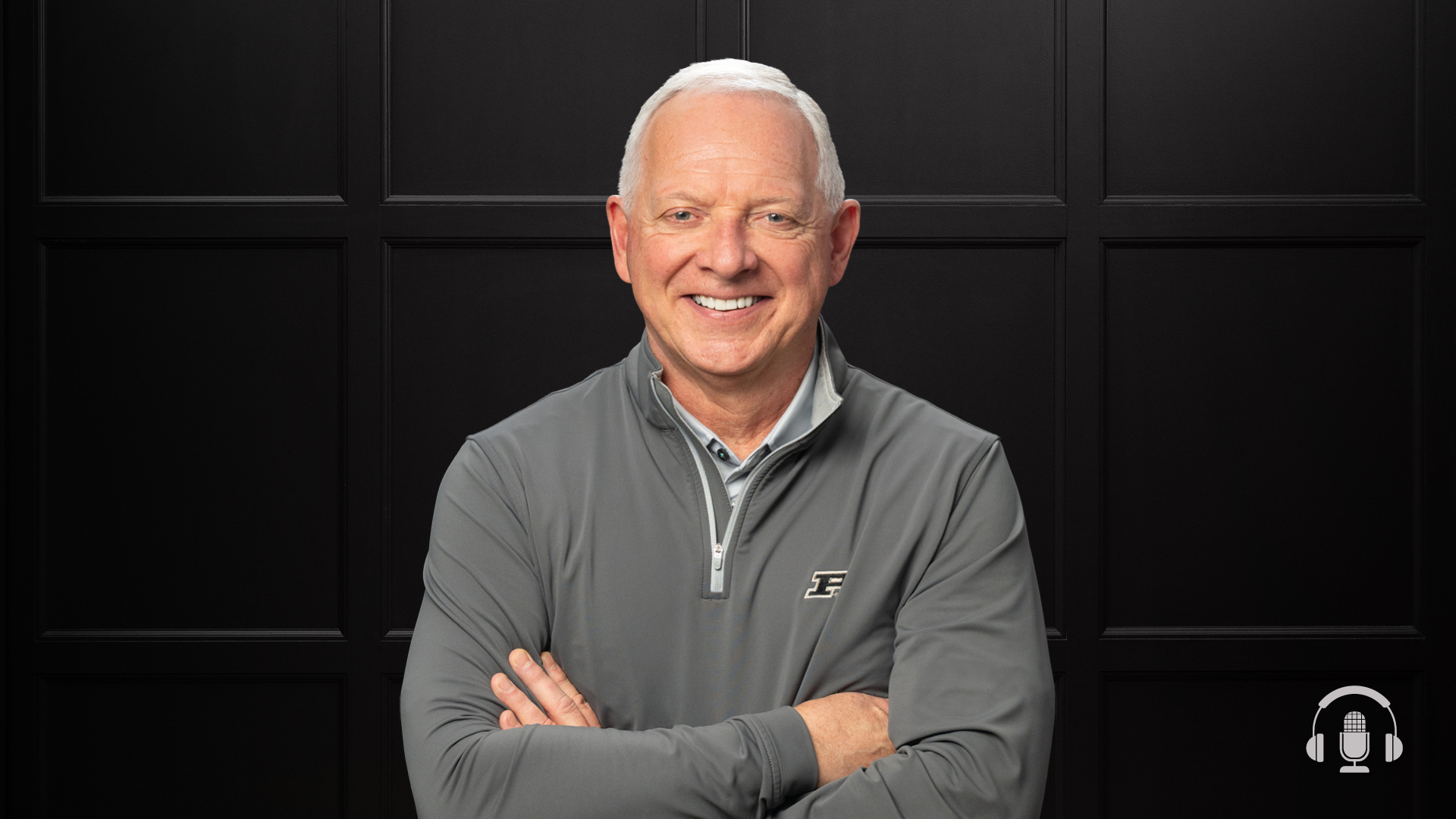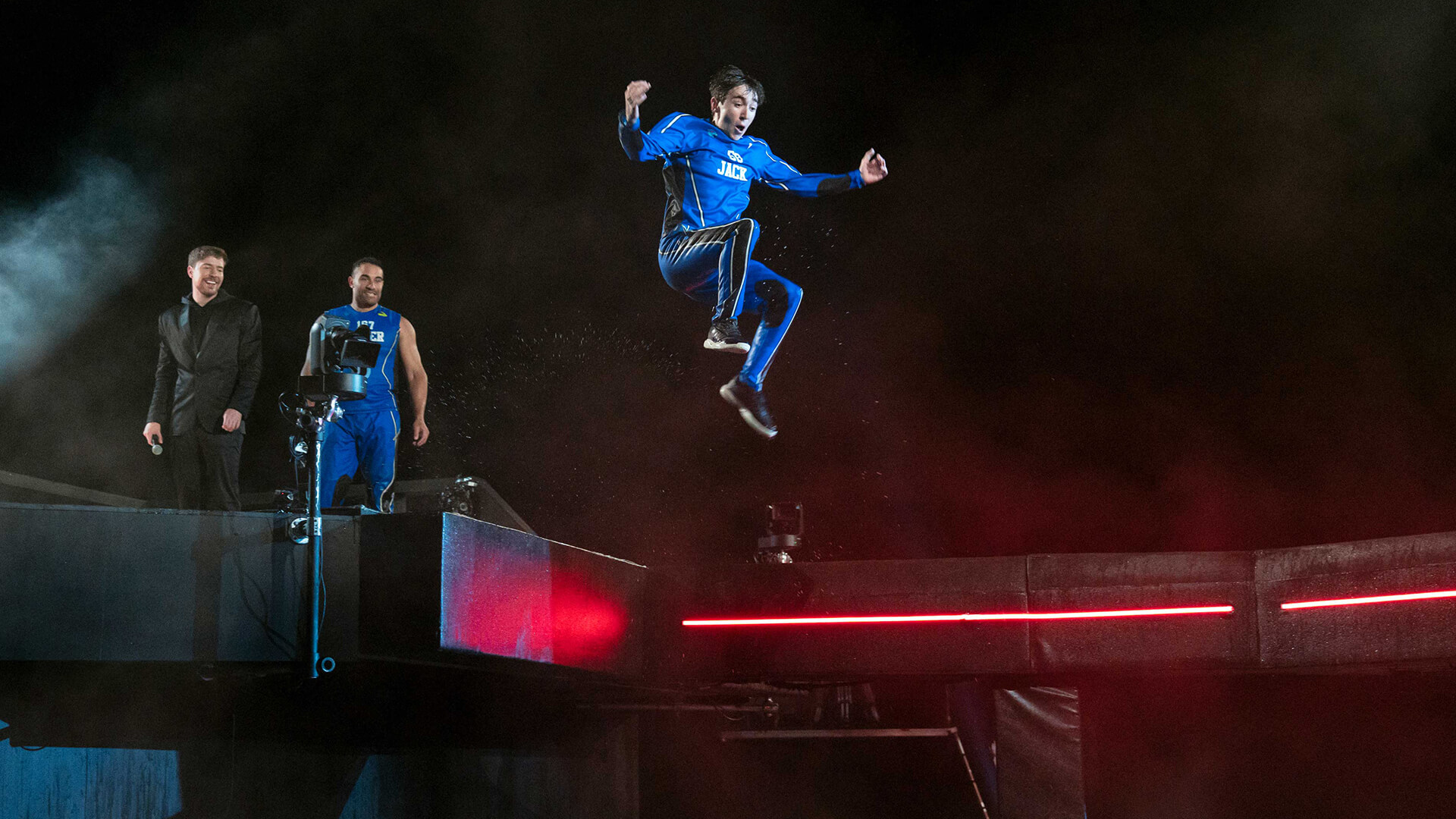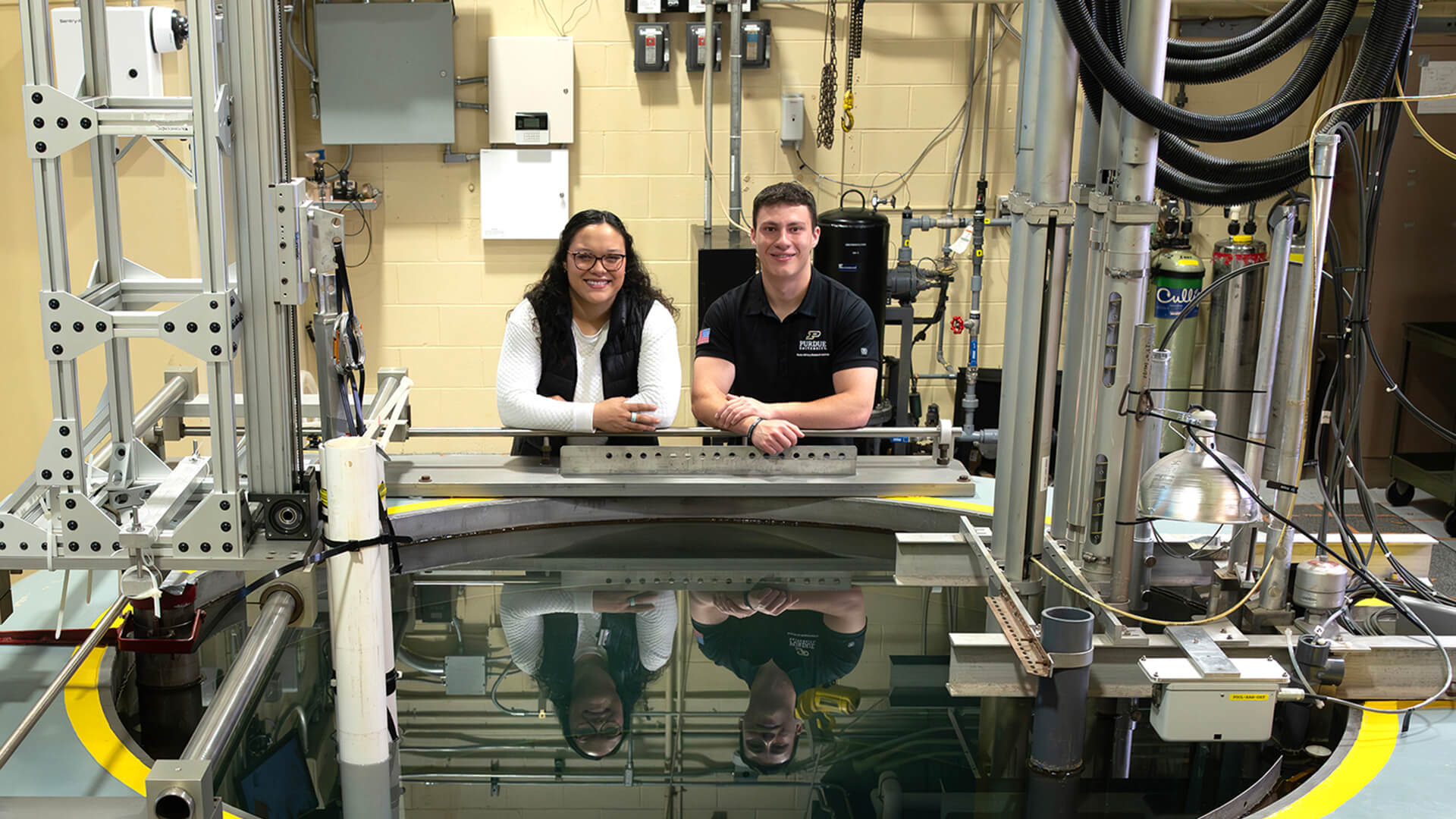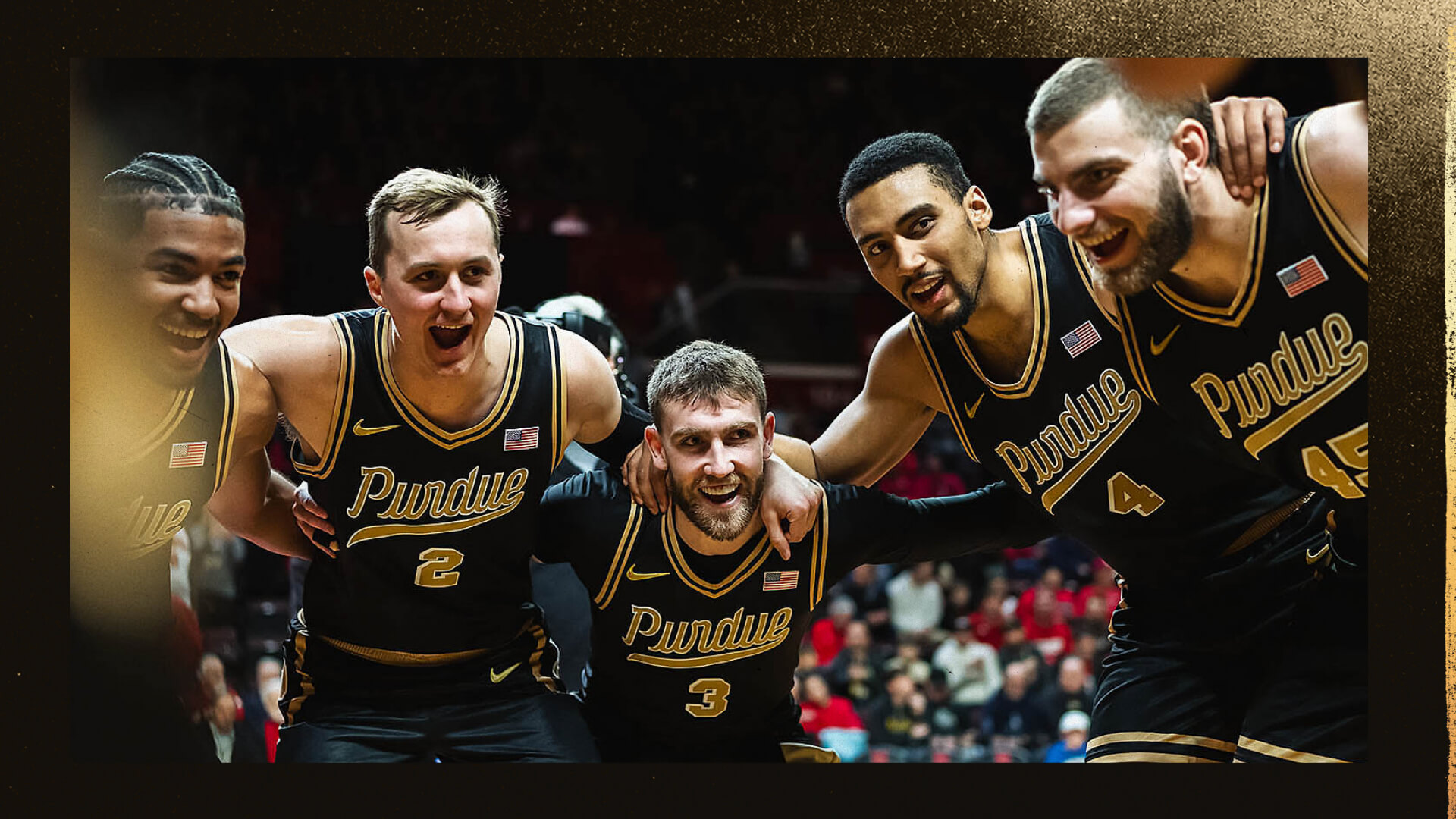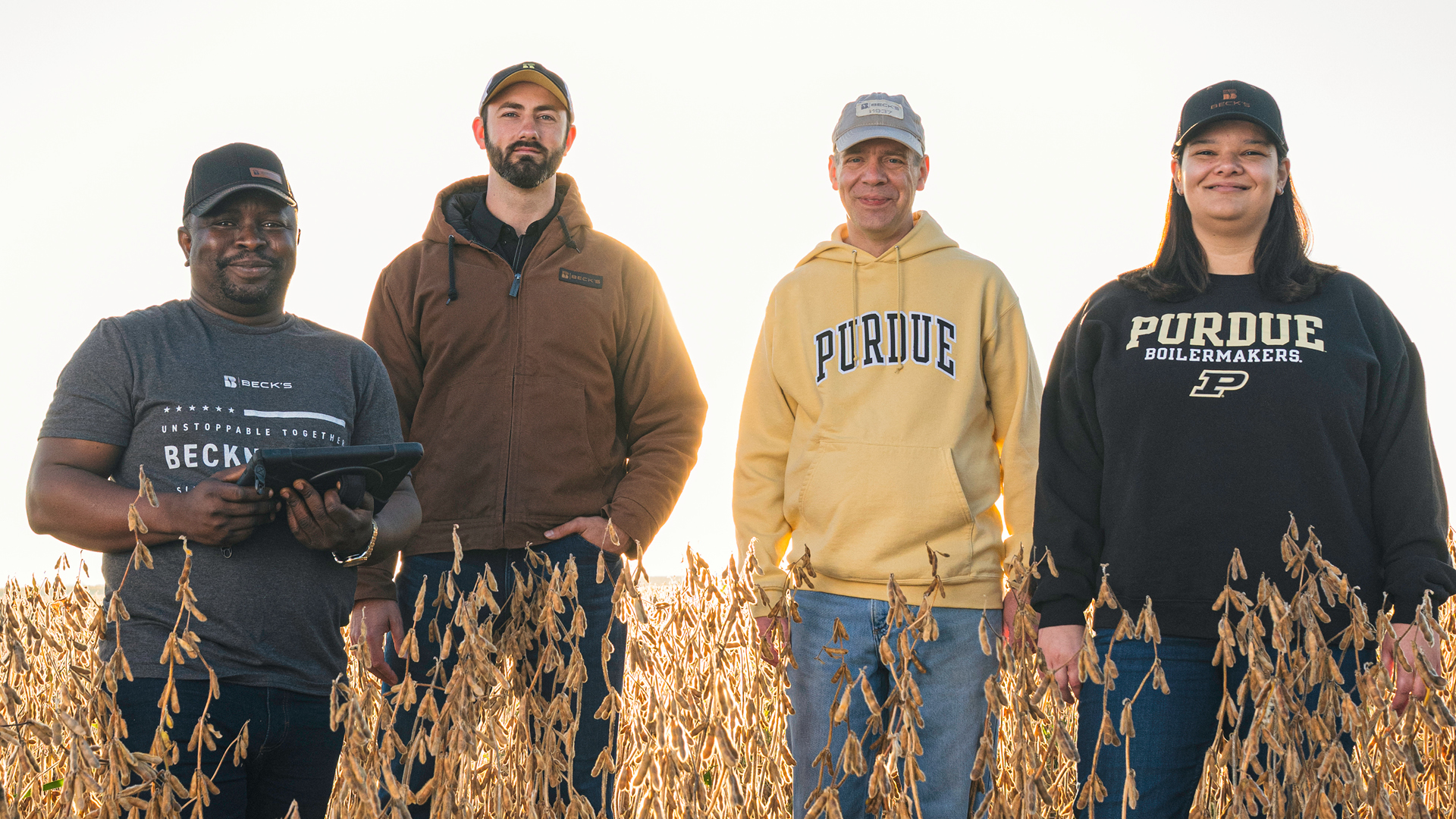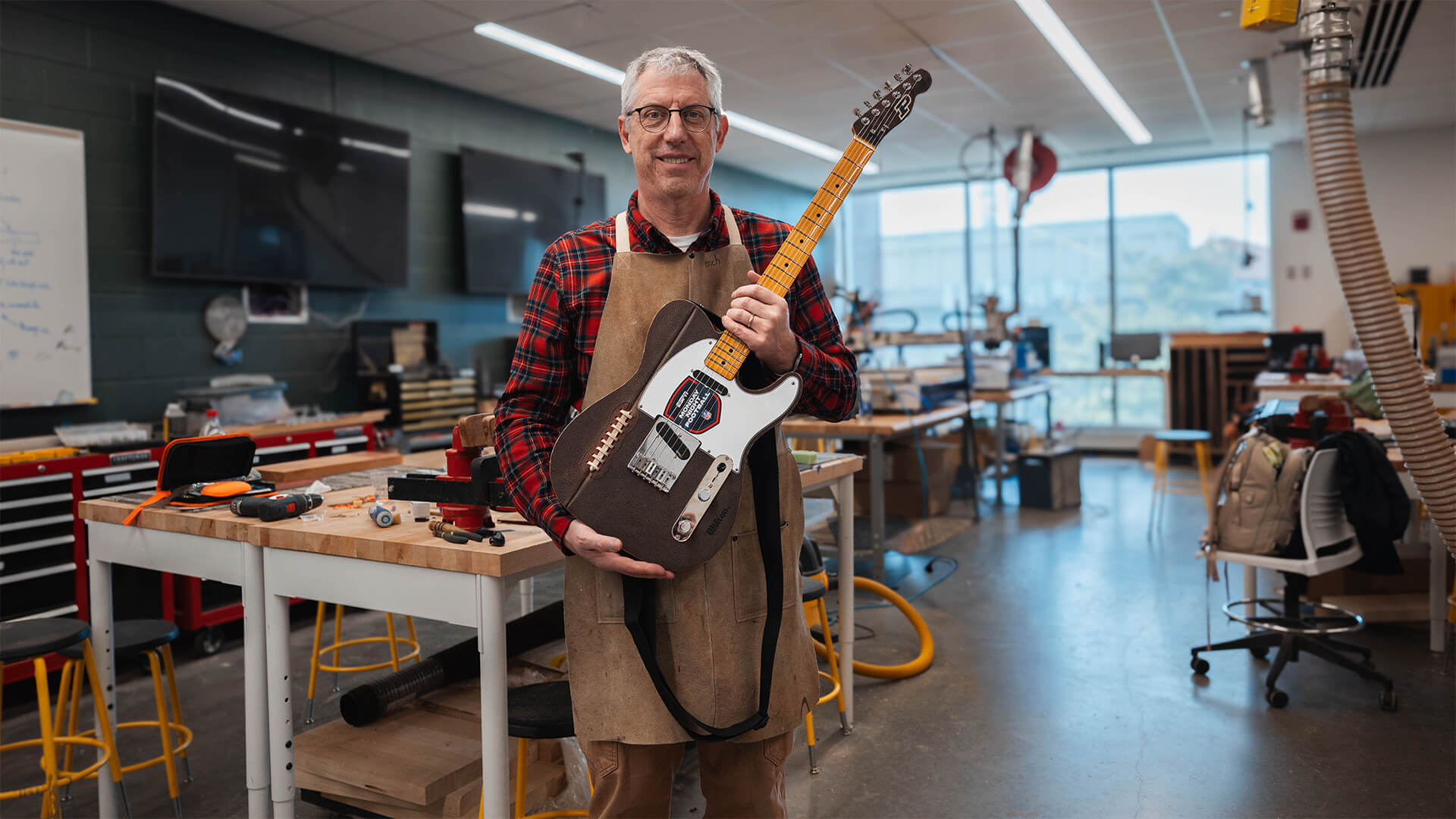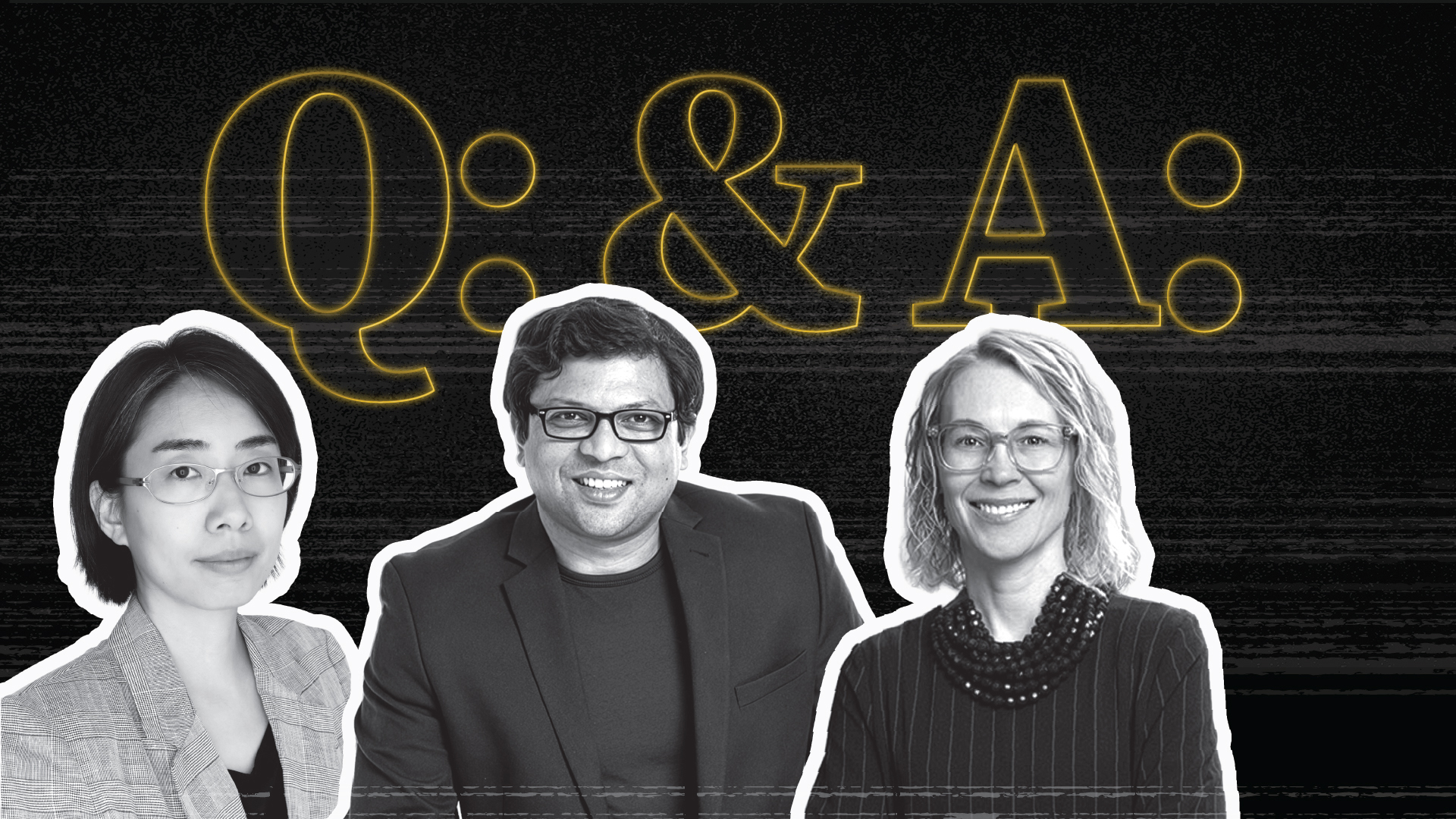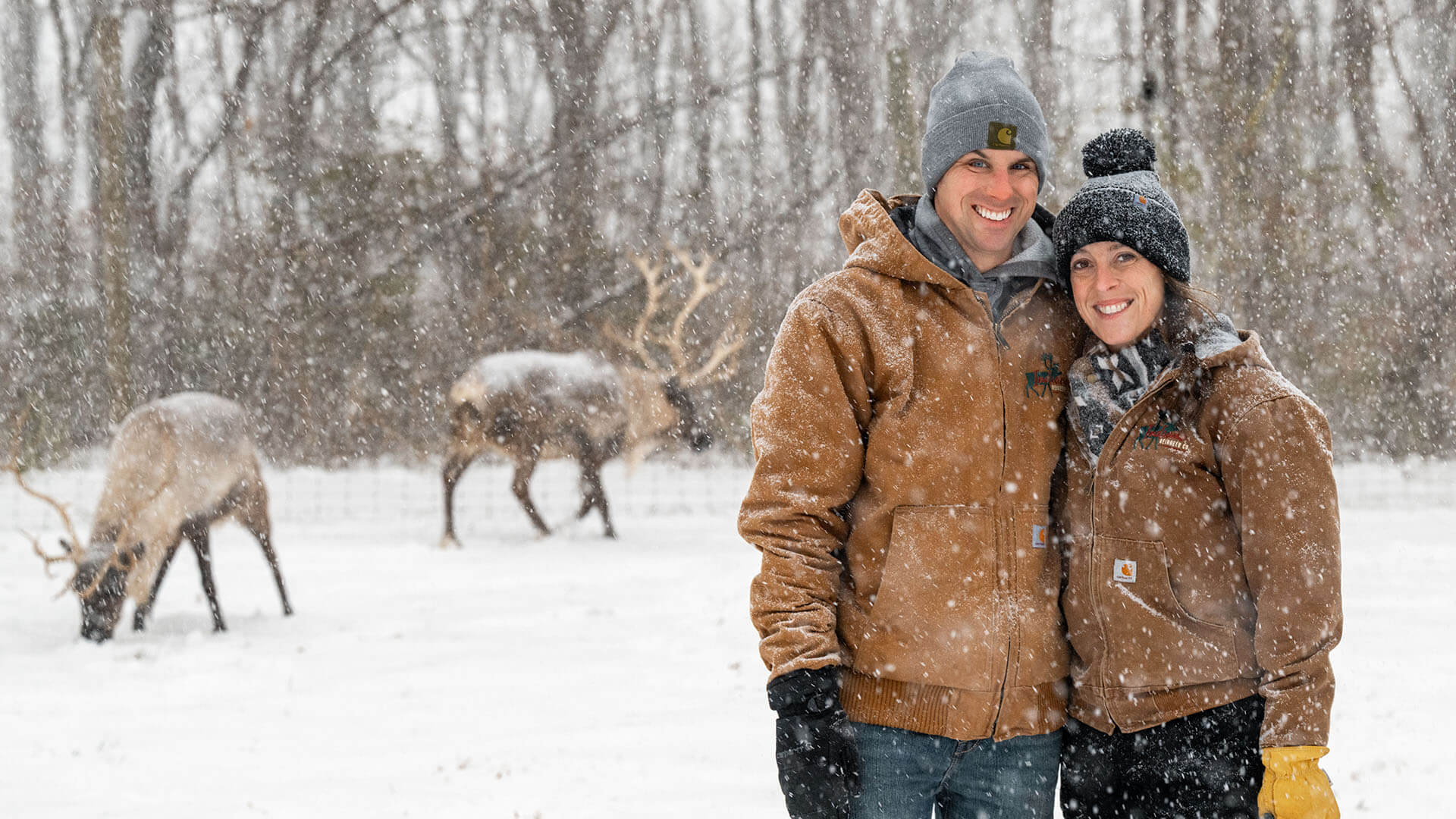Bringing a STEM approach to live entertainment
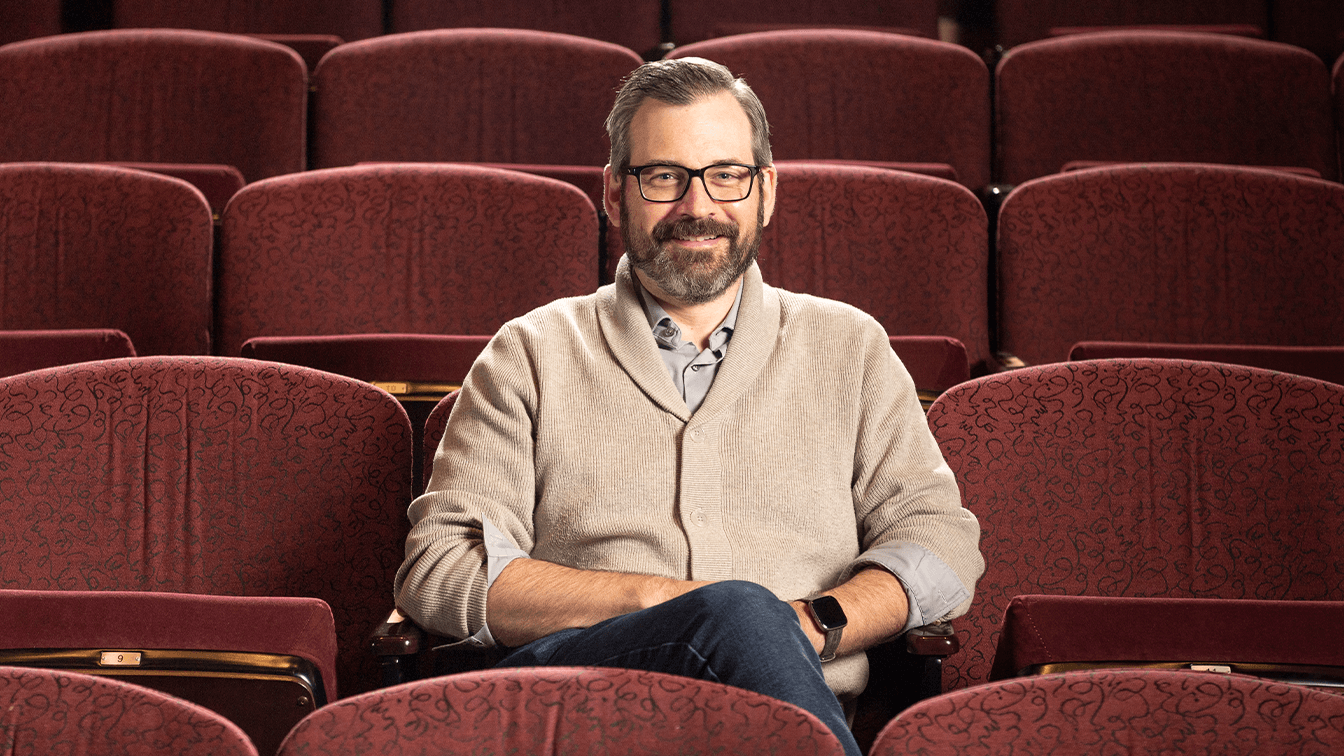
Purdue’s Fusion Studio for Entertainment and Engineering serves as a conversation hub connecting entertainment industry, practitioners and academia
Shep Dick, Issy Block and their teammates thought they had found an ideal solution to the task at hand. And maybe they had.
Unfortunately, real life intervened at the worst possible time, one day before the theatre engineering students would present the prop they created for the Stage Machine Design Competition, an event sponsored by Purdue’s Fusion Studio for Entertainment and Engineering.
The competing student teams had been instructed to design an Indiana Jones-inspired column that would be triggered, rise 18 inches in less than two seconds, shoot a dart that travels between five and 10 feet, and then retract within 10 seconds.
The motor that controlled their column’s rise was working perfectly, right up until it unceremoniously died. Unable to quickly locate a replacement motor, the teammates scrambled to devise a Plan B at the last minute.
“Most of our Plan Bs had sort of already been thrown out the window because we had Plan A and it was working perfectly,” says Dick, a senior also majoring in multidisciplinary engineering with a concentration in theatre engineering. “After it broke, we prioritized the most important aspects of the machine and ended up with a better product than we had before, even if it didn’t fully function the way it was intended.”
The teammates found a mechanical solution that assumed the motor’s central role in their design, and they still managed to power through and win the next day’s competition with their updated creation. Even better, Dick eventually found another motor, though he surrendered a night’s sleep while writing new code to make the mechanism function. The team showed the contest judges how their initial creation worked after all.
“I’m not glad it happened, obviously, but I’m glad I have that experience,” Dick says. “I think it’s going to serve me well.”
Indeed it will, as technical practitioners working in live entertainment frequently face hard deadlines and unforeseen challenges. Block, Dick and their teammates solved a problem they might encounter again someday, when, by whatever means necessary, the show must go on.
“You have to practice the ‘What if it goes wrong?’ more than the ‘What if it goes right?’” Block says. “Because it’s the real world. Things don’t go as planned, and you can’t just sit there with no plan.”
A space to share multidisciplinary ideas
The design team’s predicament and successful attempt to resolve it is one example of why Fusion Studio exists.
Founded in 2020 by co-directors Mary Pilotte and Rich Dionne, Fusion Studio responds to a need that Purdue is uniquely positioned to fill within an entertainment industry whose technological capabilities are rapidly advancing. It is not a building, nor an academic research center — two misconceptions that Pilotte and Dionne occasionally must correct — but instead a conversation space connecting those involved in this burgeoning field.
“The center is idealized for all students of any discipline, engineering or non engineering, and frankly, all academic institutions across the United States, industry and theme parks. We want to support this lively endeavor that we call entertainment,” says Pilotte, director of engineering education undergraduate degree programs and professor of engineering practice. “We have this little kernel of something that started in engineering with support through the College of Liberal Arts, but we’re trying to give it wings and airspace. The center was the only way that we could kind of decouple institutional boundaries and silos.”
As a hub for students, practitioners and academics to interact with technical specialists in areas of entertainment like theatre, acoustics, visual design and lighting, Fusion Studio builds a knowledge-sharing community that injects an engineer’s much-needed diligence into the creative process.
“Efforts to be more intentional, particularly around ethics and safety related to technology, are becoming a more deeply embedded part of the live entertainment culture,” says Dionne, associate professor of practice and theatre production manager in the Patti and Rusty Rueff School of Design, Art and Performance.
“Live entertainment events are complex, with a massive number of variables that can impact safety; everything from the use of firearms to audience movement, guardrails on elevated platforms to massive moving elements—each alone has the possibility to be dangerous, never mind when they are combined into a large event. The live entertainment industry has to continue to learn what to think about in terms of safety, and how to think about it,” Dionne says.
“Tempering the rush to change how we structure entertainment experiences with well-founded intentionality and ethical thinking is really, really essential,” Dionne adds. “And while I think that theatre degrees have gotten much better about that in the last 20 years, there’s a much longer culture of that in engineering that we could really benefit from.”
Purdue’s theatre engineering concentration is the only such program in the United States with accreditation from the Accreditation Board for Engineering and Technology, Inc. (ABET). Its coveted ABET-accredited status has benefited theatre engineering graduates as they entered the workforce and made Purdue — with its wealth of engineering and technological resources — a model for other universities to emulate.
Efforts to be more intentional, particularly around ethics and safety related to technology, are becoming a more deeply embedded part of the live entertainment culture.
rich Dionne
Associate professor of practice and theatre production manger
“We were being asked by other institutions to come share this secret sauce that they thought we had,” Pilotte says. “I guess the secret sauce is the Purdue thing, these assets that we have across campus.”
The Stage Machine Design Competition is one of Fusion Studio’s three primary outreach initiatives. It also hosts First Fridays, monthly virtual workshops where industry experts share their insights, as well as the Symposium on Education in Entertainment and Engineering. The annual symposium addresses trends in curricular design, academic research and new developments at the intersection of engineering and live entertainment.
Each initiative is designed to expand participants’ knowledge and develop connections between those who might approach creative tasks — in the case of the Stage Machine Design Competition, the Indiana Jones-style dart mechanism — in entirely different ways.
“The truth is none of us is an island. My successes are as much the successes of the people that I reach out to and go, ‘All right, I have this problem. I think I know how to solve it. What do you think?’” Dionne says. “Giving students an opportunity to have those conversations early in their career and to start to identify their colleagues who think differently than they do, that they can go to and say, ‘I know that Mary’s going to have a different way of thinking about this, and I need that right now. So Mary, what do you think about this problem?’ I think that’s a really important part about what that event does.”
Fusion’s future
Pilotte and Dionne believe entertainment engineering will evolve into its own sector within academia, with multiple distinctive concentrations. Fusion Studio’s co-directors expect some university to create a department catering to this growth area within the next decade, and they would love for it to be Purdue.
They also have ambitious dreams for how Purdue might provide practical workforce training across a wide range of academic disciplines, including hospitality, business and the aforementioned technical areas — all under a broad, live entertainment umbrella.
It’s a matter of accumulating the resources to realize their ambitions.
“Rich and I both dream big. We don’t think small when we’re doing something. Why go small? Go big,” Pilotte says. “And if Purdue can’t do it, who can do it? We are always looking for that moonshot, so to speak, but we’re also realistic that right now we’re not even close to that. So, we take very measured steps trying to do little things that move us forward, keep the ball moving.”
In the meantime, Fusion Studio continues in its mission to build community between entertainment industry stakeholders and train professionals to employ an engineering mindset that emphasizes ethics and safety.
As instructors who hail from fields of practice, Pilotte and Dionne possess a unique understanding of how the silos that can inhibit multidisciplinary interaction within academia rarely exist in the real world. By breaking down those walls, they expect to provide pathways toward entertainment innovation that is built upon a firm engineering foundation.
“Another part of the secret sauce that Rich has created is this notion of not ‘either/or’ but ‘and.’ It’s not like someone coming in from overhead saying, ‘No, you can’t do that,’ but being part of the community from within — being both engineer and appreciator of entertainment,” Pilotte says.
